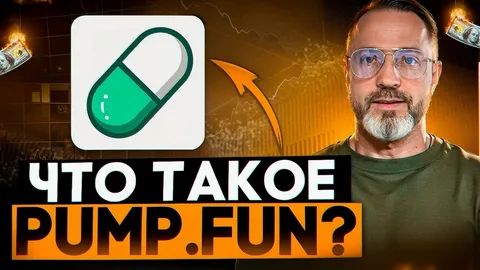Introduction
The cryptocurrency world is buzzing with news of a significant transaction involving Pump.fun, a platform known for its innovative yet sometimes controversial role in the crypto space.
The headline: a fee account associated with Pump.fun has sold $25 million worth of SOL, Solana’s native cryptocurrency. Such a large-scale sale has sent ripples through the market, sparking debates about its potential impact on Solana’s price, the motivations behind the sale, and what this means for both Pump.fun and the broader blockchain ecosystem.
This blog post explores the background of Pump.fun, unpacks the details of this substantial transaction, and delves into the broader implications for Solana and the cryptocurrency industry. By the end, we’ll aim to understand whether this event is an isolated occurrence or a sign of larger trends affecting crypto markets.

1. What is Pump.fun and Its Role in the Crypto Ecosystem?
Pump.fun has carved a niche as a platform that facilitates liquidity pooling and enables strategic crypto trading. Its design emphasizes user engagement, allowing traders to interact within gamified environments. This approach has earned Pump.fun significant popularity among retail investors and market participants who leverage its tools to trade assets like Solana (SOL), Ethereum (ETH), and a host of altcoins.
However, Pump.fun’s business model also relies heavily on fee collection. Each trade or transaction conducted on the platform incurs fees, which are funneled into dedicated fee accounts. Over time, these accounts can amass substantial holdings of cryptocurrency, making them key players in influencing market dynamics.
The recent sale of $25 million worth of SOL from a Pump.fun fee account raises crucial questions about liquidity, transparency, and the governance of such platforms.
2. Unpacking the $25M SOL Sale
To better understand the implications, let’s break down the key aspects of this transaction:
Scale and Timing
Selling $25 million worth of SOL in a single transaction is no small feat. Given Solana’s current market valuation, this represents a substantial amount of liquidity entering the market. Large sales like this can trigger short-term price volatility, especially if the market perceives the sale as a bearish signal.
The timing of the sale is also notable. As of late 2024, Solana has been regaining traction after a series of technical upgrades and increased adoption in Web3 projects. The sale could either indicate Pump.fun’s need for operational capital or a strategic decision to diversify its holdings.
Motivations Behind the Sale
- Operational Costs: Pump.fun might require fiat or stablecoin liquidity to fund its expansion or settle operational costs.
- Market Strategy: The sale could be part of a deliberate market-making strategy, where the platform reallocates its assets to maintain a diversified portfolio.
- Regulatory Pressure: With increasing scrutiny on crypto exchanges and platforms, Pump.fun may be preparing for regulatory compliance by converting its holdings.
Market Reaction
In the hours following the sale, Solana experienced a slight dip in price, though it recovered relatively quickly. This reflects the market’s resilience and the growing depth of liquidity pools supporting SOL trading. Nonetheless, traders remain cautious about further movements by Pump.fun and similar entities.
3. The Impact on Solana (SOL) and Its Ecosystem
The Solana blockchain has long been celebrated for its high-speed transactions and low fees, making it a favorite for DeFi projects and NFT marketplaces. However, large transactions like this can have both immediate and long-term effects on the network.
Short-Term Effects
- Price Volatility: As seen, the immediate aftermath of the sale led to minor price fluctuations. Large sell-offs can spook retail investors, leading to panic selling.
- Liquidity Testing: The market’s ability to absorb such a significant sale without crashing demonstrates the robustness of Solana’s trading ecosystem.
Long-Term Effects
- Reputation Concerns: Repeated large-scale transactions by platforms like Pump.fun could raise questions about Solana’s decentralization and the concentration of holdings among whales and fee accounts.
- Community Governance: This event might spur discussions within the Solana community about implementing safeguards to prevent undue influence from centralized entities.
Broader Ecosystem Implications
The Solana Foundation and ecosystem developers might take this as a cue to bolster trust by introducing measures that increase transparency around large transactions. Enhanced reporting and analytics tools could help reassure stakeholders about the network’s health.
4. Lessons for Crypto Investors and Platforms
The Pump.fun fee account’s sale of $25M SOL offers several takeaways for crypto investors, traders, and platform operators:
Transparency Matters
For platforms like Pump.fun, maintaining transparency is critical. Clear communication about the motivations behind such sales can help manage market sentiment and prevent undue panic.
Diversification is Key
For retail and institutional investors, this event highlights the importance of diversifying holdings. Concentrated positions in one cryptocurrency can expose portfolios to volatility stemming from events like these.
Regulatory Preparedness
As regulators worldwide tighten their grip on the crypto industry, platforms should proactively prepare for compliance requirements. Selling large amounts of cryptocurrency might be part of a strategy to align with emerging regulations on custody and taxation.
Community Engagement
Platforms must engage with their communities to maintain trust. By involving stakeholders in decision-making processes, Pump.fun and similar platforms can ensure alignment with user expectations.
Conclusion
The sale of $25 million worth of SOL by a Pump.fun fee account underscores the growing influence of centralized platforms in decentralized ecosystems. While the immediate impact on Solana was relatively contained, this event serves as a reminder of the delicate balance between market activity and investor confidence.
As the crypto industry continues to mature, events like these will likely become more common. Platforms like Pump.fun have a responsibility to act transparently, while investors must remain vigilant and informed.
What do you think about the implications of this sale? Could this signal broader trends in the crypto market, or is it an isolated event? Let us know your thoughts in the comments below!






